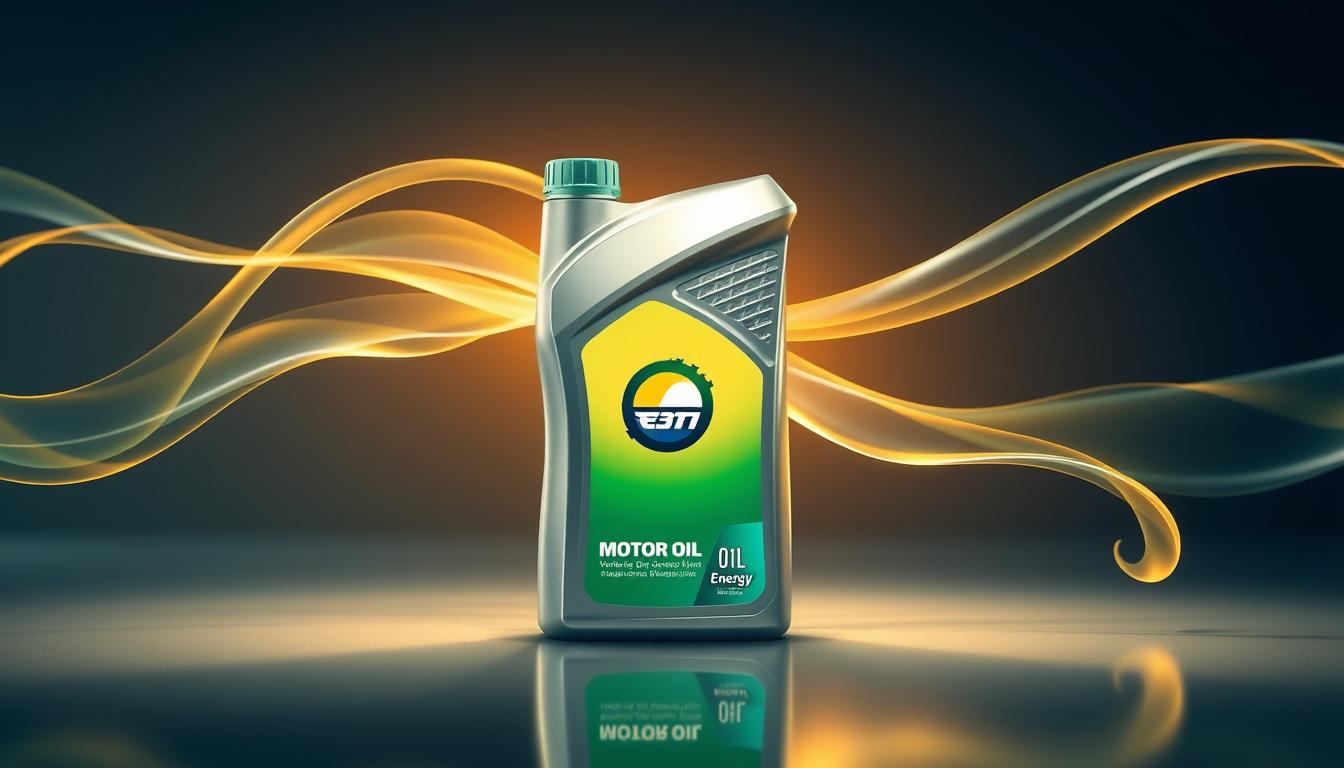Car owners are constantly seeking ways to enhance engine efficiency and lower fuel expenses. A frequently overlooked aspect is the type of motor oil used. Opting for fuel-efficient motor oils can significantly contribute to better car fuel economy and engine performance.
The correct motor oil can diminish engine friction, resulting in enhanced fuel efficiency. By selecting the appropriate oil, you can potentially cut down on fuel costs and ensure your engine operates more smoothly. Let’s examine how various motor oils affect fuel consumption and what criteria to consider when choosing the ideal option for your vehicle.
Key Takeaways
- Fuel-efficient motor oils can improve car fuel economy
- Proper oil selection reduces engine friction
- Low-viscosity oils often provide better fuel efficiency
- Synthetic oils typically outperform conventional oils
- Always follow manufacturer recommendations for oil type
- Regular oil changes are essential for maintaining fuel efficiency
Understanding Motor Oil’s Impact on Fuel Efficiency
Motor oil is essential for your car’s performance and fuel economy. It significantly influences your engine’s efficiency. Let’s explore how this vital fluid impacts your engine’s performance.
Motor Oil’s Effect on Engine Performance
High-quality motor oil ensures your engine operates smoothly. It lubricates moving parts, reducing wear and tear. This leads to enhanced engine performance, which in turn boosts fuel efficiency.
With less resistance, your engine requires less energy to function. This efficiency is critical for maintaining optimal fuel consumption.
Oil Viscosity and Fuel Economy
Oil viscosity is a determinant of fuel economy. Thinner oils, due to their lower viscosity, flow more easily. This requires less energy to pump through the engine, improving fuel efficiency.
Choosing the right viscosity is essential. It depends on your engine type and operating conditions. Selecting the correct viscosity ensures optimal fuel economy.
| Viscosity Grade | Best For | Fuel Economy Impact |
|---|---|---|
| 0W-20 | Modern engines, cold climates | High |
| 5W-30 | Most passenger vehicles | Moderate |
| 10W-40 | Older engines, hot climates | Low |
Friction Reduction Properties
Advanced motor oils contain additives that reduce friction. These additives create a slippery coating on engine parts. This minimizes energy loss due to friction.
Less friction means your engine operates more efficiently. This efficiency translates to improved fuel economy and performance.
“The right motor oil can improve fuel efficiency by up to 2%, which adds up to significant savings over time.”
Low-Viscosity Oils and Their Benefits
Low-viscosity motor oil has revolutionized the automotive sector. These oils flow effortlessly through engines, minimizing internal friction and significantly boosting fuel economy. Car manufacturers increasingly endorse these oils for newer models, highlighting their superior performance.
The primary benefit of low-viscosity motor oil lies in its capacity to enhance fuel economy. By reducing engine resistance, these oils optimize engine efficiency. This results in fewer fuel stops and increased savings for the driver.
Contrary to common misconceptions, low-viscosity oils do not compromise engine protection. Instead, they offer rapid engine part coverage upon startup, ensuring superior wear protection. This rapid circulation prevents metal-on-metal contact, prolonging engine longevity.
Exploring the advantages of low-viscosity motor oils reveals:
- Improved fuel economy
- Enhanced engine protection
- Faster oil circulation on startup
- Reduced engine wear
- Lower emissions
Many car owners are concerned that thinner oils might not adequately protect their engines. This fear is misplaced with contemporary low-viscosity formulations. These oils are meticulously crafted to offer superior protection while also improving fuel economy.
| Oil Type | Fuel Economy Improvement | Engine Protection |
|---|---|---|
| Conventional 10W-30 | Baseline | Good |
| Low-viscosity 0W-20 | Up to 2.6% | Excellent |
| Ultra-low-viscosity 0W-16 | Up to 3.5% | Superior |
As evident from the table, low-viscosity motor oils significantly enhance fuel economy without compromising engine protection. For most contemporary vehicles, transitioning to these oils can yield substantial performance and efficiency gains.
Synthetic vs. Conventional Oils for Fuel Economy
The choice of motor oil can significantly influence fuel economy. We will examine the fuel efficiency of synthetic oil, conventional motor oil, and semi-synthetic oil.
Full Synthetic Advantages
Synthetic oil excels in fuel economy due to its refined molecular structure. This structure minimizes engine friction, leading to enhanced efficiency. As a result, it improves gas mileage and extends the interval between oil changes.

Conventional Oil Limitations
Conventional motor oil, though more affordable, has fuel efficiency drawbacks. It degrades faster and performs poorly in extreme temperatures. These limitations can result in increased fuel consumption over time.
Semi-Synthetic Options
Semi-synthetic oil represents a middle ground between synthetic and conventional oils. It offers better fuel economy than conventional oil but at a lower cost than full synthetic. This makes it a preferred choice for many drivers seeking a balance.
| Oil Type | Fuel Economy | Cost | Longevity |
|---|---|---|---|
| Synthetic Oil | High | High | Long |
| Conventional Motor Oil | Low | Low | Short |
| Semi-Synthetic Oil | Medium | Medium | Medium |
Selecting the appropriate oil is critical for your vehicle’s fuel efficiency. While synthetic oil provides superior performance, semi-synthetic oil offers a cost-effective alternative for those on a budget.
Energy Conserving Motor Oils Explained
Energy conserving oils are vital for boosting fuel efficiency and minimizing engine wear. They are crafted to adhere to stringent standards established by the American Petroleum Institute (API). This ensures they offer superior performance.
API Certification Standards
The API certification process is designed to verify the performance of energy conserving oils. Oils that successfully complete these tests are granted the “Energy Conserving” label. This label signifies that the oil enhances fuel economy and protects the engine.
| API Certification | Benefits |
|---|---|
| Energy Conserving | Improved fuel economy, reduced engine wear |
| Standard | Basic engine protection |
Special Additives for Fuel Economy
Fuel-saving additives are integral to energy conserving oils. These additives include friction modifiers and viscosity improvers. Friction modifiers form a protective layer on engine components, reducing friction and heat. Viscosity improvers ensure the oil maintains the right thickness across different temperatures, facilitating smooth engine operation.
Opting for energy conserving oils with API certification can significantly enhance fuel efficiency and engine performance. These oils, when used in conjunction with regular maintenance, can result in substantial fuel savings and engine longevity.
Best Motor Oil Grades for Car Engine Efficiency
Choosing the right motor oil grades is essential for your car’s fuel efficiency. SAE viscosity ratings are key in selecting the optimal oil for your engine. We will examine some fuel-efficient oil grades that enhance your vehicle’s performance.
Modern engines benefit from low-viscosity oils, which balance protection and efficiency well. SAE 0W-20 and 5W-30 are favored for many newer vehicles. These oils have superior flow characteristics, reducing friction and boosting fuel economy.
Here’s a breakdown of some fuel-efficient oil grades and their benefits:
| SAE Viscosity Rating | Benefits | Suitable for |
|---|---|---|
| 0W-20 | Excellent cold-start performance, high fuel efficiency | Many modern cars and light-duty vehicles |
| 5W-30 | Good all-around performance, improved fuel economy | Wide range of vehicles, including SUVs and light trucks |
| 0W-16 | Ultra-low viscosity, maximum fuel efficiency | Specific newer models designed for this grade |
Always refer to your vehicle’s manual for the recommended motor oil grade. Using the correct oil ensures optimal engine protection and maximizes fuel efficiency. Some manufacturers recommend synthetic oils for superior performance and economy.
“Choosing the right motor oil grade is like giving your engine a tailor-made suit – it fits perfectly and helps it perform at its best.”
By choosing the appropriate fuel-efficient oil grades, you can enhance your car’s efficiency without sacrificing engine protection. Remember, climate and driving conditions can affect your motor oil choice.
Modern Oil Technologies and Fuel Savings
Recent advancements in engine oil technology have significantly impacted fuel efficiency. Innovations are now enabling drivers to achieve better fuel economy and increased miles per gallon. Let’s examine some of the latest oil technologies that are revolutionizing fuel savings.

Friction Modifiers
Friction modifiers are additives designed to diminish friction between engine components. They create a protective film on metal surfaces, facilitating smoother movement. This reduction in friction translates to less energy loss, resulting in enhanced fuel efficiency. Some friction modifiers can boost fuel economy by up to 2%.
Advanced Polymer Technology
Polymer technology is revolutionizing motor oils. These advanced molecules ensure the oil maintains optimal viscosity across a broad temperature spectrum. The oil remains thin in cold temperatures for easier engine start-up, yet thickens in heat to safeguard engine components. This adaptability enhances engine performance across various conditions.
Nano-Additives
Nano-additives, despite their small size, offer substantial benefits. These microscopic particles fill in minute imperfections on metal surfaces, reducing friction to a minimum. Some nano-additives can even repair minor wear and tear, extending engine longevity.
| Technology | Fuel Savings | Main Benefit |
|---|---|---|
| Friction Modifiers | Up to 2% | Reduces energy loss from friction |
| Polymer Technology | 1-3% | Optimizes oil thickness for all temperatures |
| Nano-Additives | 1-2% | Creates ultra-smooth surfaces, repairs minor wear |
These cutting-edge oil technologies collectively enhance fuel efficiency. By minimizing friction, optimizing viscosity, and protecting engine components, they enable engines to operate at peak efficiency. This synergy results in more miles per gallon, benefiting both drivers and the environment.
Temperature Considerations and Oil Performance
Oil temperature is vital for engine performance and fuel efficiency. As temperatures change, oil viscosity alters, impacting its protective and lubricating functions.
In cold starts, oil thickens, hindering engine rotation. This results in higher fuel use as the engine struggles to overcome this resistance. Modern oils, enriched with additives, maintain viscosity in cold, ensuring smooth starts and enhanced fuel economy.
High-temperature performance is equally critical. As engines warm up, oil can thin, jeopardizing its protective role. Advanced synthetic oils retain viscosity at extreme temperatures, ensuring consistent protection and fuel efficiency.
| Temperature Range | Oil Behavior | Impact on Fuel Efficiency |
|---|---|---|
| Cold (-20°F to 32°F) | Thickens, flows slowly | Decreased efficiency, higher fuel consumption |
| Optimal (180°F to 200°F) | Ideal viscosity, flows freely | Peak efficiency, optimal fuel economy |
| Hot (Above 230°F) | Thins out, potentially breaks down | Reduced efficiency, increased fuel usage |
Opting for the right oil is key, considering your climate and driving style. Multi-grade oils, such as 5W-30, strike a balance between cold-start benefits and high-temperature performance. They are ideal for various conditions, ensuring fuel efficiency throughout the year.
Manufacturer Recommendations for Optimal Efficiency
Car manufacturers invest significantly in designing engines for peak performance. Adhering to manufacturer guidelines is essential for maintaining your vehicle’s efficiency and longevity. Understanding the significance of these recommendations and their impact on your car’s performance is vital.
OEM Specifications
OEM specifications are fundamental to your car’s well-being. These guidelines specify the precise type of oil your engine requires. Utilizing the incorrect oil can result in reduced fuel efficiency and engine damage. Always refer to your owner’s manual for the appropriate oil grade and viscosity.
Warranty Considerations
Your vehicle warranty heavily relies on the use of the correct motor oil. Deviating from manufacturer recommendations could invalidate your warranty, placing you at risk for expensive repairs. Adhering to the suggested oil types is imperative to safeguard your investment and ensure peak performance.
| Aspect | Following Recommendations | Ignoring Recommendations |
|---|---|---|
| Fuel Efficiency | Optimal | Decreased |
| Engine Wear | Minimal | Accelerated |
| Warranty Status | Maintained | Potentially Voided |
| Long-term Costs | Lower | Higher |
By following manufacturer guidelines, you’re not only preserving your car but also optimizing its performance and protecting your investment. Always consult your vehicle’s manual or a certified mechanic to ensure the use of the correct oil for your specific make and model.
Common Myths About Motor Oil and Fuel Economy
Many drivers hold onto motor oil myths that can significantly affect their fuel economy. We will examine some prevalent misconceptions and present fuel economy facts. This information aims to guide you in making informed decisions regarding your vehicle’s maintenance.
Debunking Popular Misconceptions
One common myth posits that thicker oil offers superior engine protection. In reality, modern engines often benefit from lower viscosity oils, which can enhance fuel efficiency. Another misconception is the necessity of changing oil every 3,000 miles. Contemporary motor oils and engines support longer intervals between changes.
- Myth: Synthetic oil is not suitable for older engines
- Fact: Most engines can benefit from synthetic oil’s improved performance
- Myth: You can’t switch between synthetic and conventional oils
- Fact: Mixing oil types is generally safe and won’t harm your engine
Scientific Evidence
Research indicates that the correct motor oil can significantly influence fuel economy. A study by the U.S. Department of Energy revealed that switching to low-viscosity oil can enhance fuel efficiency by 1-2%. This improvement, though small, accumulates over time.
| Oil Type | Fuel Economy Improvement | Annual Savings* |
|---|---|---|
| Conventional (10W-30) | Baseline | $0 |
| Synthetic Blend (5W-30) | 1-2% | $30-$60 |
| Full Synthetic (0W-20) | 2-3% | $60-$90 |
*Based on 12,000 miles/year at $3/gallon gas price
Understanding these motor oil myths and fuel economy facts can optimize your vehicle’s performance and save money at the pump. Adhering to your manufacturer’s recommendations for oil change frequency and type is essential. This ensures your engine’s health and efficiency.
When to Change Oil for Maximum Fuel Efficiency
Ensuring your engine’s smooth operation is essential for optimal fuel efficiency. The traditional 3,000-mile oil change interval is outdated. Modern engines and oils now support longer intervals without compromising performance.
Today’s vehicles are equipped with sophisticated oil life monitoring systems. These systems analyze engine revolutions, temperature, and driving conditions to signal when an oil change is necessary. Adhering to these alerts helps maintain peak fuel efficiency and prevents premature oil changes.
For those without such systems, experts recommend oil changes every 5,000 to 7,500 miles for conventional oil. Synthetic oil can go up to 15,000 miles. These longer intervals not only reduce costs but also contribute to environmental sustainability.
- Check your owner’s manual for recommended oil change intervals
- Pay attention to oil life monitoring system alerts
- Consider your driving habits and conditions
Regular oil changes are fundamental to fuel efficiency maintenance. Fresh oil minimizes engine friction, leading to better fuel efficiency. Adhering to the recommended oil change intervals enhances your vehicle’s performance and fuel economy.
“Timely oil changes are like giving your engine a new lease on life. They keep it running smoothly, efficiently, and help you save at the pump.”
While longer oil change intervals offer benefits, don’t overdo it. Ignoring oil changes can harm fuel efficiency and engine health. Finding the right balance between frequency and necessity is key to maintaining your engine’s health and your financial well-being.
Top Brands Offer Fuel-Efficient Motor Oils
Several brands lead the market in fuel-efficient motor oils. They have developed formulas that enhance engine performance and reduce fuel consumption.
Premium Options
Mobil 1 and Castrol EDGE are renowned for their fuel-saving capabilities. These premium oils utilize advanced synthetic technologies to minimize friction and boost engine efficiency. Though pricier, many drivers deem the long-term fuel savings worth the investment.
Budget-Friendly Choices
For those seeking cost-effective alternatives, Valvoline and Pennzoil present budget-friendly options. These brands offer synthetic blend formulas that strike a balance between affordability and performance. They are favored by everyday drivers for their practicality.
Performance Reviews
Real-world tests have demonstrated the efficacy of fuel-efficient motor oils. Users often report enhanced gas mileage after transitioning to these specialized oils. Independent studies corroborate these findings, affirming that high-quality synthetic oils can significantly reduce fuel consumption over time. When selecting a motor oil, it’s essential to consider both user feedback and scientific evidence to identify the most suitable option for your vehicle and driving habits.

Leave a Reply